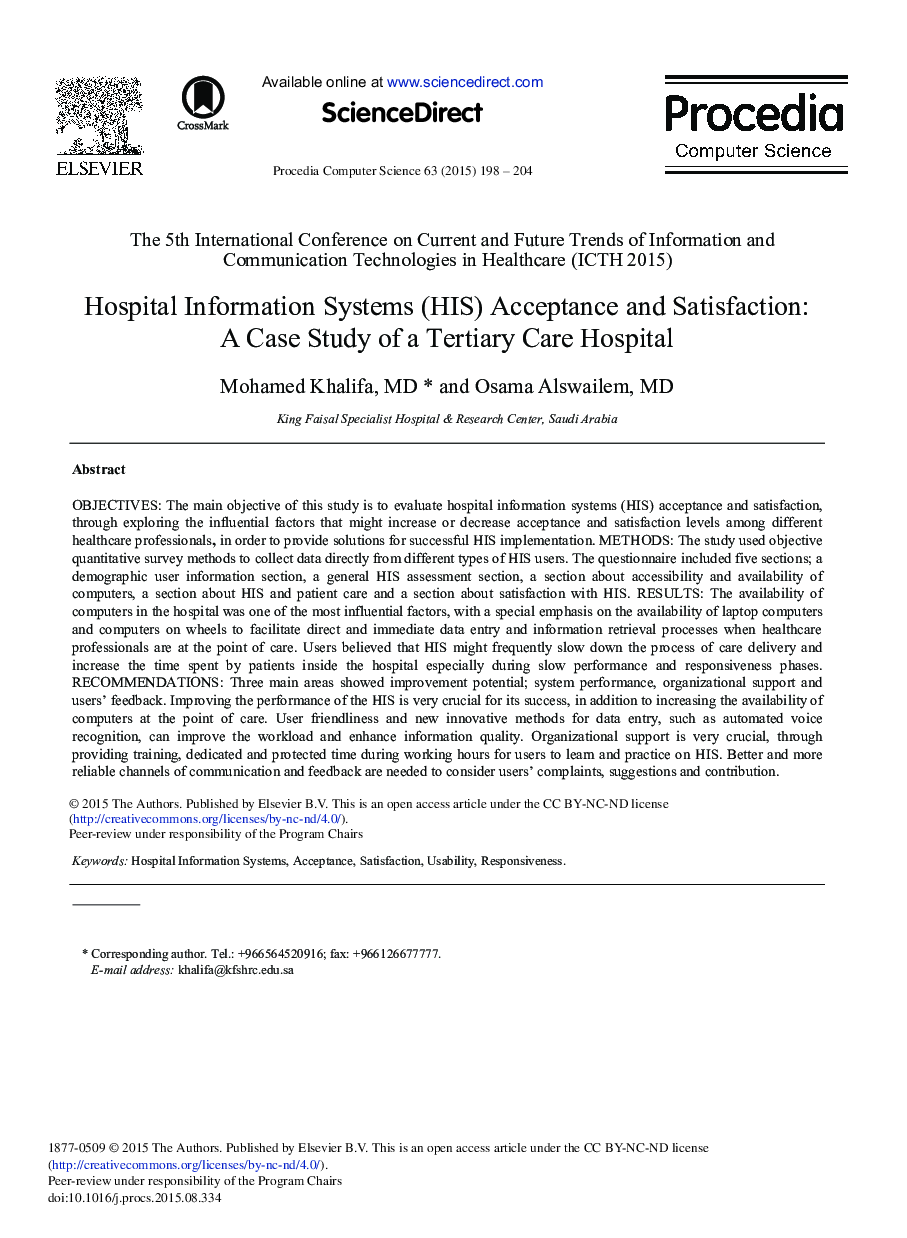| Article ID | Journal | Published Year | Pages | File Type |
|---|---|---|---|---|
| 484567 | Procedia Computer Science | 2015 | 7 Pages |
OBJECTIVESThe main objective of this study is to evaluate hospital information systems (HIS) acceptance and satisfaction, through exploring the influential factors that might increase or decrease acceptance and satisfaction levels among different healthcare professionals, in order to provide solutions for successful HIS implementation. METHODS: The study used objective quantitative survey methods to collect data directly from different types of HIS users. The questionnaire included five sections; a demographic user information section, a general HIS assessment section, a section about accessibility and availability of computers, a section about HIS and patient care and a section about satisfaction with HIS. RESULTS: The availability of computers in the hospital was one of the most influential factors, with a special emphasis on the availability of laptop computers and computers on wheels to facilitate direct and immediate data entry and information retrieval processes when healthcare professionals are at the point of care. Users believed that HIS might frequently slow down the process of care delivery and increase the time spent by patients inside the hospital especially during slow performance and responsiveness phases. RECOMMENDATIONS: Three main areasshowed improvement potential; system performance, organizational support and users’feedback. Improving the performance of the HIS is very crucial for its success, in addition to increasing the availability of computersat the point of care. User friendliness and new innovative methods for data entry, such as automated voice recognition,can improve the workload and enhance information quality. Organizational support is very crucial, through providing training, dedicated and protected time during working hours for users to learn and practice on HIS. Better and more reliable channels of communication and feedback are needed to consider users’ complaints, suggestions and contribution.
